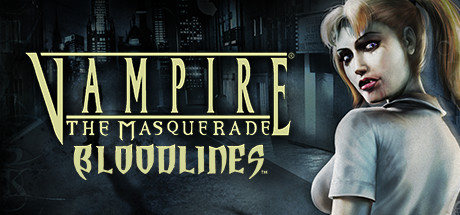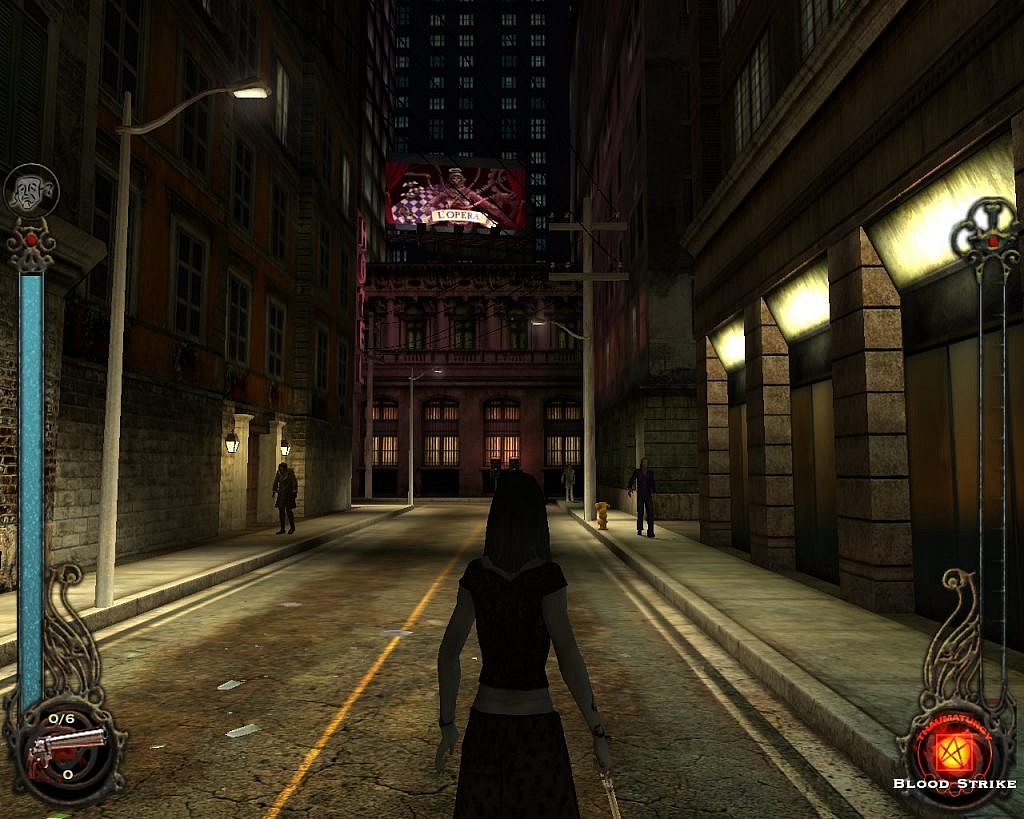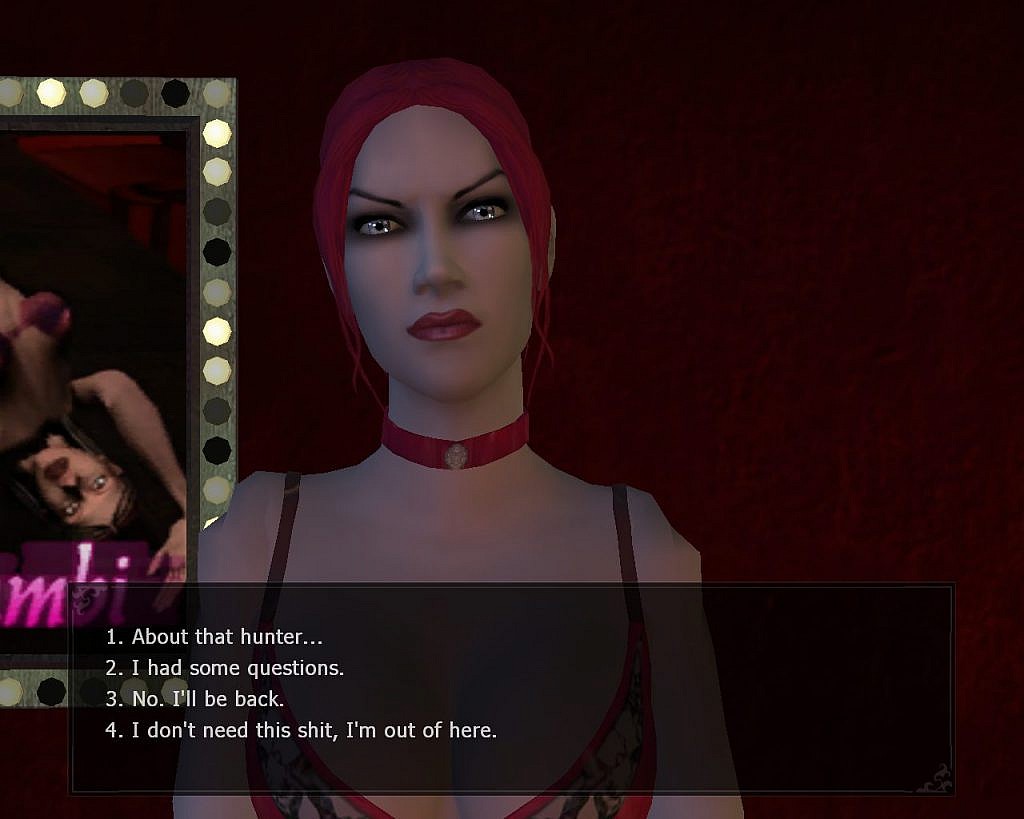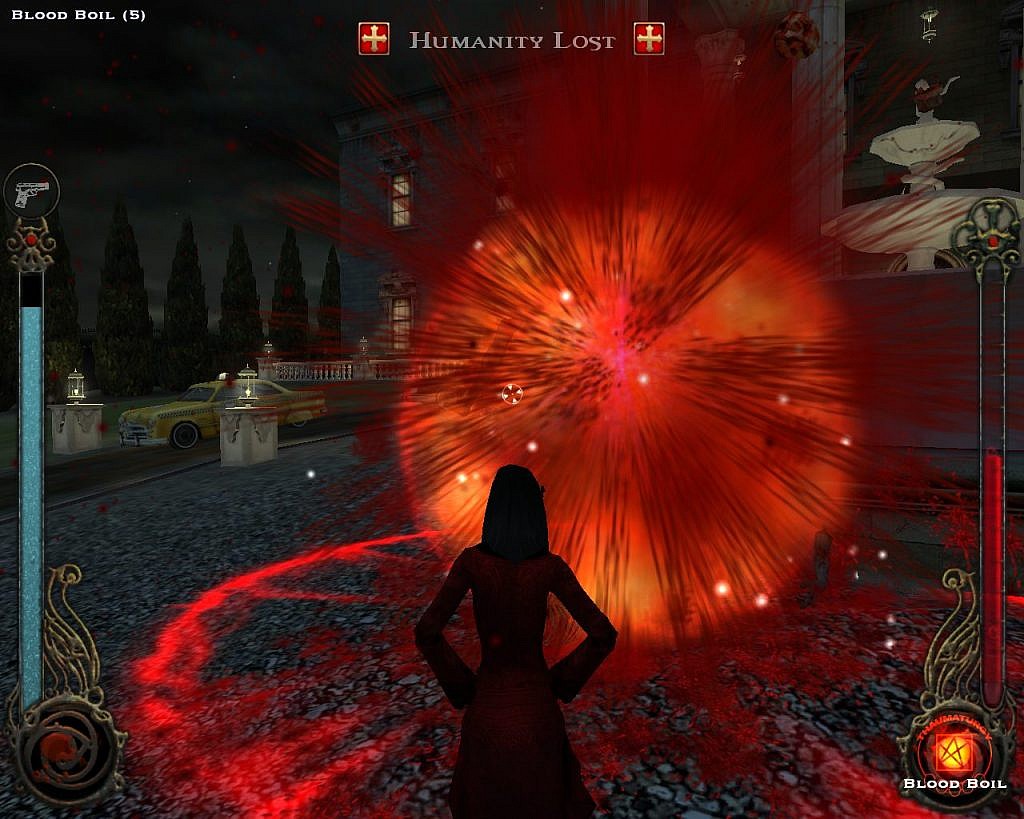Vampire: The Masquerade – Bloodlines is a game that performed poorly upon its release back in 2004, but has since then gained cult status. In it, you play as a vampire in modern-day Los Angeles. There are 7 different playable vampire clans to choose from, each of them offers a differing play experience. The game is an action RPG that combines character customization with First Person Shooter & third person hack and slash combat options, so it provides you multiple different playstyles. Some clans are more well-suited for brute strength and combat, others for deception, seduction and talking their way out of trouble, some for computer hacking and sulking in the shadows. Your dialogue options and how people treat you are influenced by your clan. For example, the Nosferatu are so hideous that you creep out every-one you come across and have to move through sewers to avoid human contact, whilst Malkavians are lunatics who hear voices and speak in poetic prophesies that are utterly cryptic.
The central storyline is centered around an ancient artifact and a power struggle between different vampire factions, who fight for different political agendas. Although you rise up in ranks of the vampire society over the course of the game, there’s this everpresent sense that you’re just a tiny cog in a large machine. Even in the afterlife, there’s no escape from the petty politics and status-seeking behavior of human society. Most dialogue is prosaic but clever, making the game world and characters more grounded and relatable despite their vampiric status. Through this clever-writing and numerous references to the established lore from the pen & paper RPG the game is based on, Bloodlines manages to create an illusion that the game world is much larger and more alive than it actually is.
What I remember most from my first playthrough is how immersed in the game world I was due to how the quests are structured and written. It never felt like I was doing artificial fetch quests for game characters. The game world is densely packed with content and openly explorable, so it does a good job of crafting the image that it’s a real living place that reacts to your actions, which it does to some extent. You have to think for yourself and do some research in many side quests (rather than being told where to go and what to do), which adds a strong layer of verisimilitude to the experience as you search through people’s apartments, computers and databases for clues on missing people and such. The well animated and voice-acted characters also help to make the quests more believable.
While Bloodlines is worthy of high praise in many ways, it also drops the ball in other aspects. Combining RPG mechanics with FPS gameplay rarely makes for fun combat, and this game is no exception. The last third of the game suffers from many poorly designed quests that devolve into boring slogs through repetitive combat encounters, as the game was released prematurely due to pressure to meet deadlines. Mods can’t fix all the issues of Bloodlines, but I maintain that it’s still one of the best action-RPGs of all time, warts and all.
Developer: Troika Games
Publisher: Activision
Release Date: 2004
Platform: PC
Genre: RPG, action-RPG
PEGI: 18



